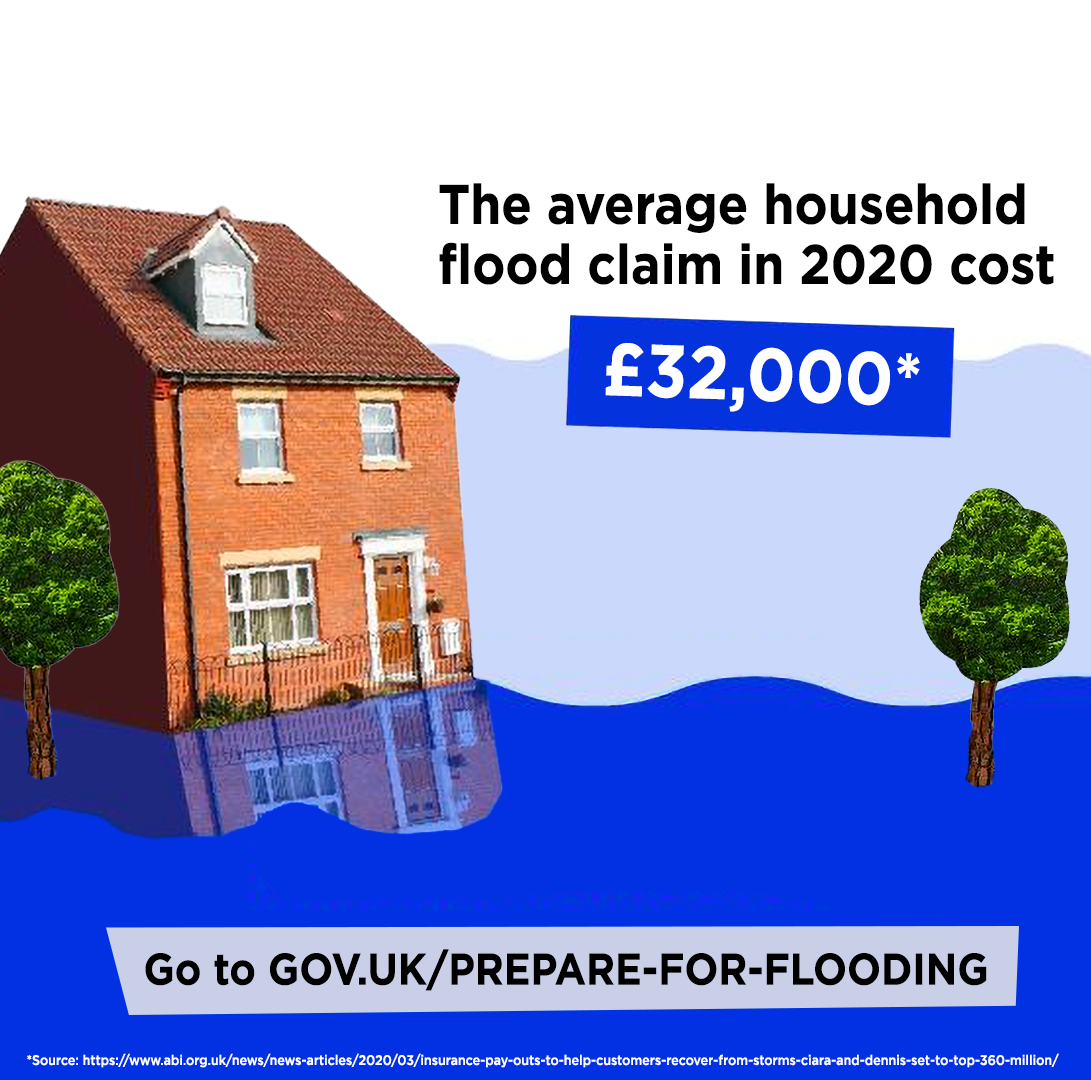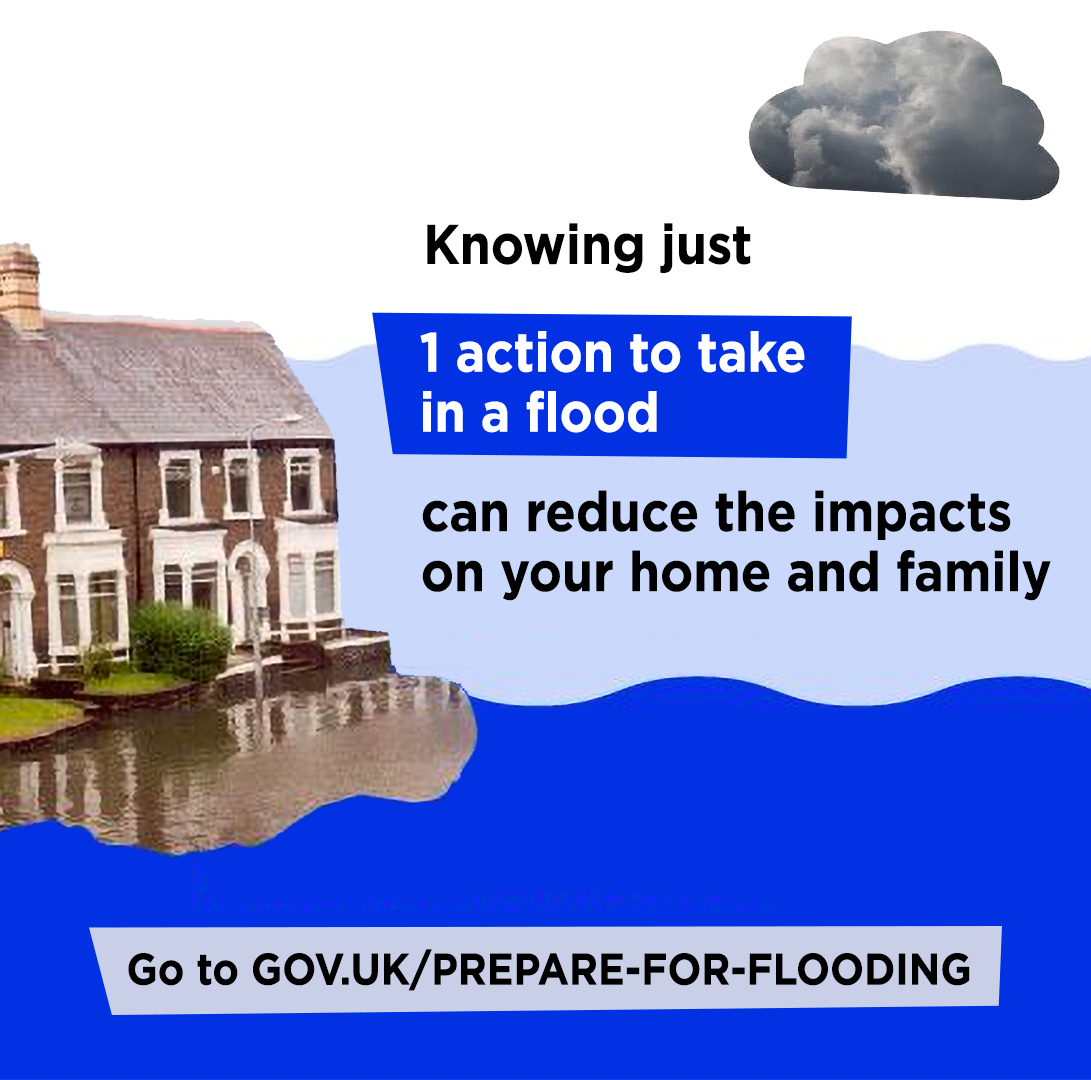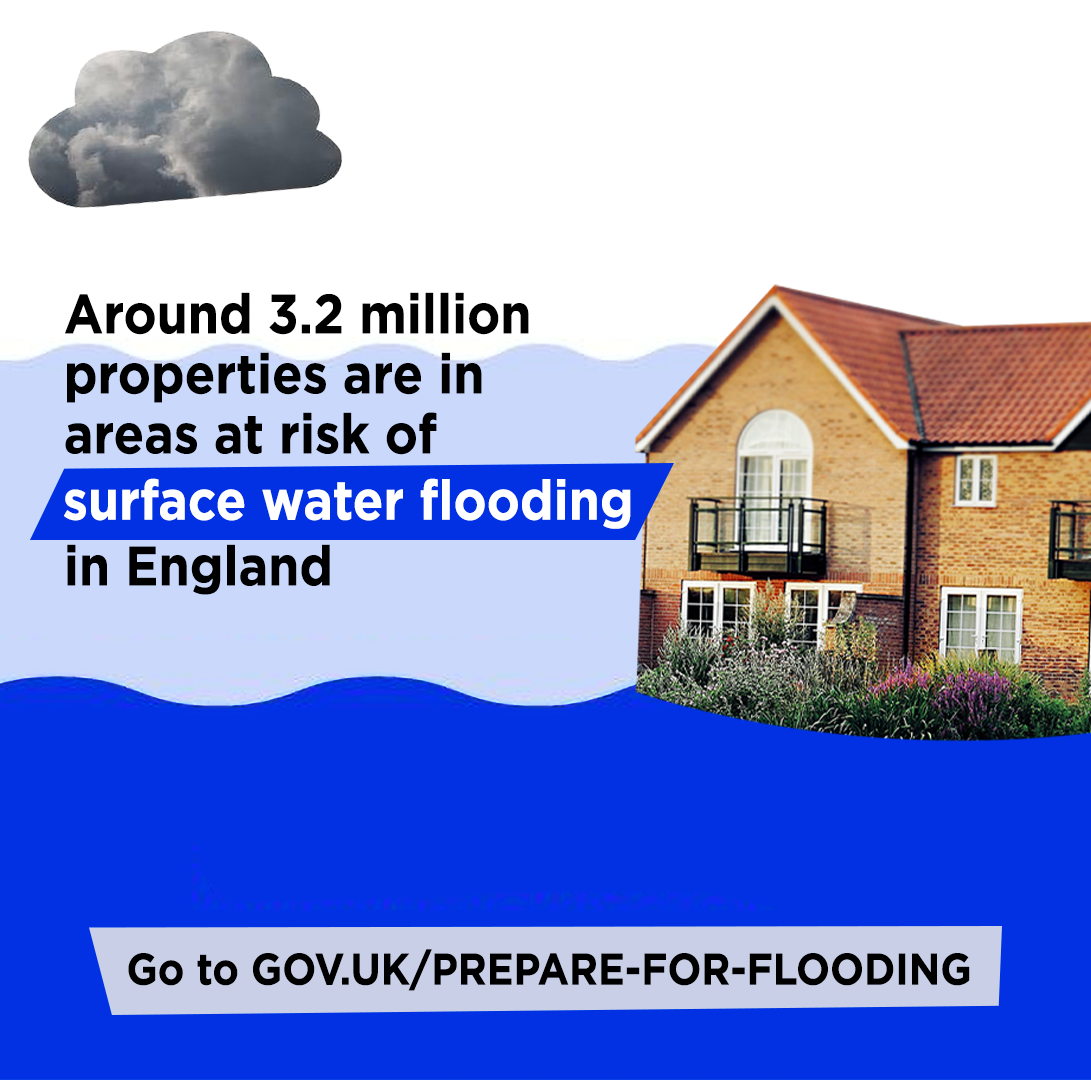With many areas recently affected by flooding, it has never been more important for people to understand the risks it can pose to their home or their life.
Flood Action Week this week (14-20 October) aims to increase awareness of the risk of flooding and what to do to prepare.
SKDC shares flood warnings on its social media channels www.southkesteven.gov.uk/getsocial
Or people can sign up for their own alerts via www.gov.uk/sign-up-for-flood-warnings
In England, the Environment Agency provides three types of flood warning:
- flood alert – flooding is possible so householders should “prepare”
- flood warning – flooding is expected; householders should “act now”
- severe flood warning – flooding could be a risk to life and significant disruption to communities
Cabinet Member for Property and Public Engagement, Cllr Richard Cleaver, said: “All flood alerts and flood warnings must be taken seriously, as there are different actions recommended to each stage.
“However, severe flood warnings can be issued before, during or after flooding, and should be acted upon immediately.
“There is lots of specific advice on how to be aware of potential flooding, how to prepare your home and what to do if the worst happens.
“Anyone who rents their home from the council and it becomes flooded should contact the Housing Team on 01476 40 60 80, out of hours this is 01476 40 60 40.”

Advice is available for anyone affected by flooding at:
https://www.lincolnshireresilienceforum.org/risks/river-surface-groundwater-flooding
To report flooding inside a property, call Lincolnshire County Council's flood line on 01522 782082 at any time. External flooding should be notified to www.fixmystreet.com
During extreme weather conditions where flooding is likely, the first actions to be taken are:
- Keep children and pets away from the flooded areas
- If it's safe to do so, isolate all electrical circuits by turning off the supply at the circuit board or fuse box
- Contact your insurance provider to report the damage and make a claim (keep receipts of emergency expenses). Any claims for loss or damage must be directed to your insurance provider
- If it's safe to do so, take photos of the flooded area – these could support your insurance claim
- If you live in a rented property, you should contact your landlord and let them know

People who rent from a housing association or a private landlord need to make them aware of the situation as they are responsible for the building.
Full details: www.southkesteven.gov.uk/flooding
- Know the risk:
- o Sign up for flood warnings: gov.uk/sign-up-for-flood-warnings
- o Sign up to weather warnings: metoffice.gov.uk/about-us/news-and-media/media-centre/subscribe-to-email-alerts
- o Check the long term flood risk to understand how likely it is that a place could flood in the future, what factors could contribute to future flooding and where to get information about managing your flood risk: gov.uk/check-long-term-flood-risk
- Make a flood plan:
- o The Environment Agency offers detailed advice on how to make a plan for your property: gov.uk/government/publications/personal-flood-plan/personal-flood-plan
- Be prepared – the Environment Agency’s guide details how to prepare for a flood (www.gov.uk/prepare-for-flooding/protect-your-property), including:
- o Making sure you know how to turn off your water, gas and electricity supply
- o Checking your household building or contents insurance covers flooding – FloodRe may be able to help if you need support: https://floodre.co.uk/find-an-insurer
- o Preparing a flood kit in case you need to leave your home
Useful contacts:
- For general advice, call the Environment Agency’s 24-hour flood hotline on 0345 988 1188.
The National Flood Forum has a helpline that provides general support before, during and after a flood, including home resilience and insurance. Contact the charity on 01299 403 055.
